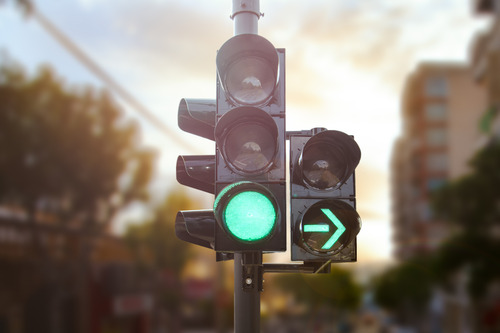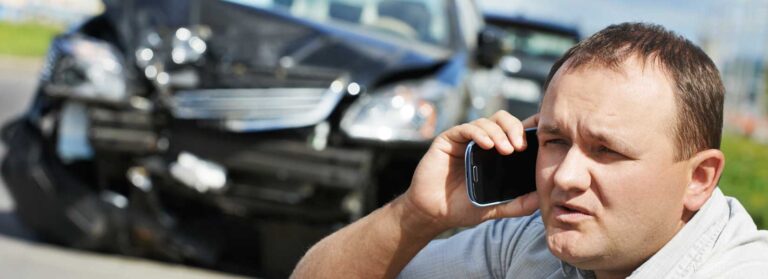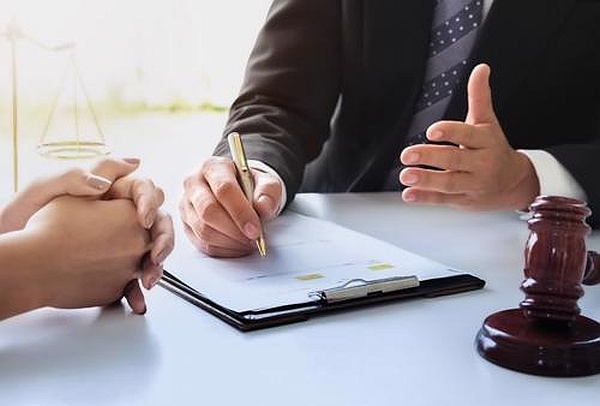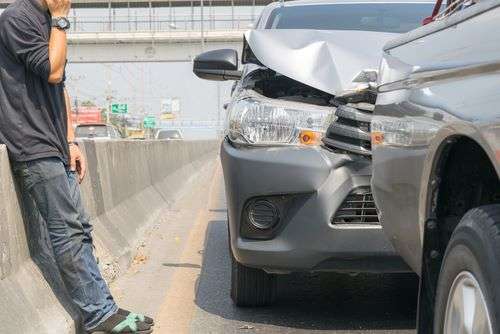At The Weinstein Firm, we’re dedicated to helping individuals who’ve been injured due to the negligence of others. With years of experience in personal injury and car accident law, we fight to ensure our clients receive the compensation they deserve. We understand the stress and uncertainty that come with legal challenges, which is why we provide personalized attention and clear guidance throughout the entire process.
Understanding Georgia right-of-way laws is essential for every driver to ensure safety and avoid accidents. These laws dictate who has the legal privilege to proceed in various traffic situations, such as intersections, merges, and school zones. Whether you’re navigating a busy intersection or encountering emergency vehicles, knowing when to yield the right-of-way can prevent traffic crashes and keep you and others safe on the road.
In this blog, we’ll walk you through Georgia right-of-way laws, common traffic scenarios, and potential legal consequences, and explain why working with an experienced Atlanta car accident attorney can help you navigate any legal challenges if you’re involved in a traffic crash.
What Is the Right-of-Way and Why Does It Matter?
The right-of-way law regulates who has the legal right to proceed first in different driving situations. Understanding these laws helps prevent accidents and ensures safer road use.
Definition of Georgia Right-of-Way Law
The right-of-way refers to the legal privilege a driver has to proceed before other vehicles or pedestrians in certain situations. These rules are essential for maintaining order and preventing accidents in busy intersections, highways, and school zones.
Importance of Yielding
Drivers must yield the right-of-way in specific situations, such as when approaching a stop sign or yielding to emergency vehicles with flashing lights. Failing to yield can lead to traffic crashes, injuries, and fines. These Georgia right-of-way laws are clearly defined and are enforced to keep roads safe.
Impact on Traffic Safety
Georgia right-of-way laws help manage traffic flow and reduce confusion on the road. By following these laws, drivers can avoid collisions and ensure smooth traffic movement. Properly yielding can also prevent accidents involving school buses, oncoming traffic, and vehicles entering a new lane.
Common Right-of-Way Scenarios
Georgia right-of-way laws apply to several common driving situations, such as when two vehicles approach an intersection at approximately the same time or when a driver needs to yield to pedestrians. Drivers must understand these rules to avoid accidents and follow traffic control devices like traffic lights, yield signs, and stop signs.
The Rules of the Road: Right-of-Way Scenarios
Georgia right-of-way laws apply in many common driving situations. Understanding these scenarios helps drivers make safe decisions and avoid accidents.
Intersections and Traffic Control Signals
At intersections controlled by traffic signals or stop signs, the right-of-way rules are straightforward. If you are at a red light or stop sign, you must come to a complete stop and yield the right-of-way to other traffic. In a green light situation, drivers must follow the traffic flow and avoid blocking intersections.
Two Vehicles Approaching from Different Directions
When two vehicles arrive at an intersection approximately at the same time, the driver on the right generally has the right-of-way. This rule also applies when turning left at an intersection, where drivers must yield to oncoming traffic coming from the opposite direction.
Yielding at Pedestrian Crossings
Drivers must yield the right-of-way to pedestrians at crosswalks. This is especially important when children are walking near school zones. Failing to stop for pedestrians, particularly when a school bus has flashing lights, can result in serious accidents and legal penalties.
Right-of-Way at Merges and Lane Changes
When merging into traffic or changing lanes, drivers must yield to vehicles already in the lane. This is critical when entering highways, intersections, or when moving into a new lane, especially with oncoming traffic. Drivers should always signal and ensure it’s safe to change lanes or merge into traffic.
Special Right-of-Way Situations
Certain driving situations require specific right-of-way rules. These scenarios demand extra attention to ensure safety for everyone on the road.
Emergency Vehicles and Highway Maintenance Vehicles
When an emergency vehicle, such as an ambulance or fire truck, approaches with emergency lights flashing, drivers must yield the right-of-way. This may include pulling over to the right side of the road or stopping entirely. The same applies when encountering highway maintenance vehicles, where drivers should be cautious and yield to avoid accidents.
School Buses and Pedestrian Safety
When a school bus is stopped with its flashing lights on, all vehicles must come to a complete stop, regardless of the direction they are traveling. This is especially important in school zones where children may be walking near the bus. Failing to stop for a school bus can result in severe penalties and dangerous accidents.
Navigating Construction Zones
In construction zones, drivers must follow posted signs and yield the right-of-way as indicated by traffic signals or flaggers. Lane changes and merges are common in these areas, and drivers must adjust their speed and position to avoid collisions with other motorists or construction vehicles. Failure to follow construction zone rules can lead to fines and accidents.
Yielding to Oncoming Traffic
When making a left turn or merging into oncoming traffic, drivers must yield the right-of-way to vehicles approaching from the opposite direction. This is especially crucial when the road does not have clear traffic control signs or signals, requiring drivers to use their judgment to safely complete the maneuver.
Common Right-of-Way Violations and Legal Consequences
Violating Georgia right-of-way laws can lead to serious consequences. Understanding these violations can help drivers avoid accidents and legal issues.
Accidents from Failure to Yield
One of the most common violations is failing to yield the right-of-way, especially at intersections or when merging with traffic. These violations often lead to crashes, particularly in busy areas where vehicles arrive at the same time. In Georgia, crashes involving failure to yield can result in injuries, vehicle damage, and significant legal liability.
Legal Consequences of Violating Georgia Right-of-Way Laws
Drivers who fail to follow Georgia right-of-way laws may face traffic tickets, fines, or even license suspension. In the case of a traffic crash, they may be held liable for any injuries or damages caused. If personal injury results from a failure to yield, the driver at fault could face a lawsuit for negligence.
Impact of Speed and Vehicle Position
Speeding and improper vehicle positioning can also contribute to violating Georgia right-of-way laws. For example, driving too fast in a construction zone or failing to adjust your position when approaching a yield sign can lead to accidents. Drivers should always be aware of their speed and the positions of other vehicles to avoid violating right-of-way rules.
Violating Georgia Right-of-Way Laws in Construction Zones
Construction zones often have specific rules for yielding to other vehicles. Ignoring traffic signs or not yielding when required can lead to accidents in these areas. Drivers should slow down and stay alert to avoid penalties or crashes in construction zones, where traffic flow may change suddenly.
Contact an Experienced Atlanta Car Accident Lawyer Today!
If you’ve been involved in a traffic accident or need assistance understanding your rights under Georgia right-of-way laws, our team at The Weinstein Firm is here to help. Our experienced Atlanta car accident attorneys are dedicated to guiding you through the legal process, ensuring that your case is handled with care and attention to detail.
Contact us at 770-HELP-NOW for a free case consultation today!





